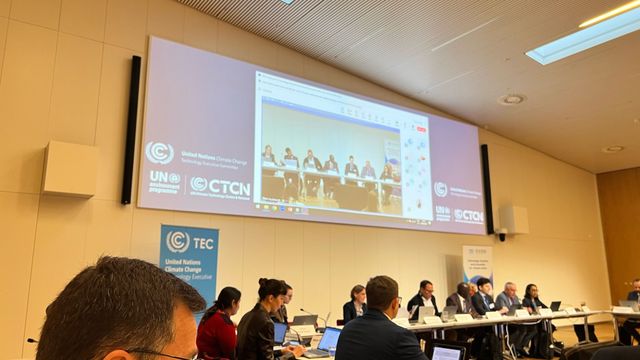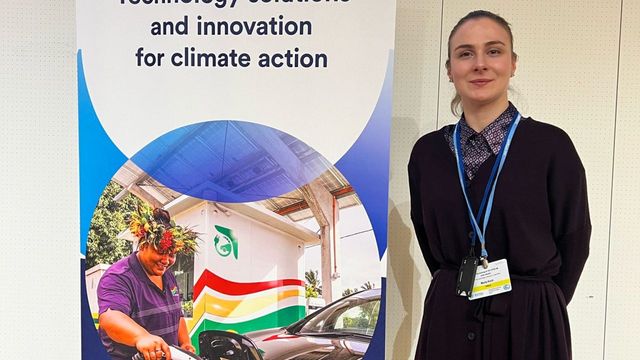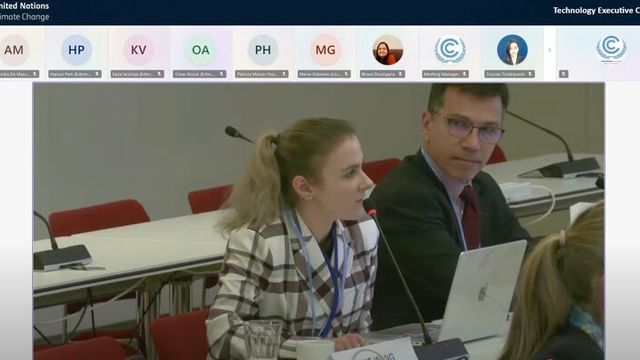Advancing Global Climate Technology Adoption: Outcomes of the UNFCCC Technology Executive Committee & Climate Technology Centre & Network Joint Session
In April 2025, I attended the 30th session of the United Nations Framework Convention on Climate Change (UNFCCC) Technology Executive Committee (TEC 30) joint meeting with the United Nations Environment Programme (UNEP) Climate Technology Centre & Network Advisory Board (CTCN AB 25) at UN City in Copenhagen. As a research constituency to the UNFCCC delegate, I witnessed firsthand why such multilateral meetings are indispensable in accelerating low-emission and climate-resilient innovation and fostering global climate technology, science-policy collaboration, and knowledge sharing.
From Scientific Research Outcomes to Global Policy Action
The Technology Executive Committee serves as the policy arm of the UNFCCC’s Technology Mechanism, catalysing the development and transfer of critical technologies that help countries fulfill their Paris Agreement commitments. Together with the implementation arm, the UNEP CTCN, the Committee ensures that policy, finance, and technical support converge to meet the world’s urgent climate change challenges. Such events align global innovation agendas, mobilize finance, and guarantee that breakthrough technologies reach the climate-vulnerable and developing country communities that need them the most.
Science-policy collaboration through researcher engagement remains a vital channel: By bringing rigorous evidence into multilateral negotiations, we can ensure decisions are timely and grounded in robust data and tested methodologies. Research insights help shape discussions, flag emerging risks, and keep policy ambitions firmly tethered to the evidence-based reality. The UNFCCC has taken concrete steps to ensure this by continuing to include the researcher community as part of its observer constituencies. Such commitments illustrate how multilateral engagement can shape high-level policy, translating academic findings into concrete policy engagement and action.
Progress on Priority Workstreams
During TEC 30, the Secretariat, UN Member States, and delegates tackled a wide-ranging agenda: refining national systems of innovation; advancing technology needs assessments; mobilizing multilateral finance; closing the digital divide; reviewing COP29 outcomes; and setting the stage for the Bonn Climate Change Meetings (SB 62) in Germany in June.
Key outcomes from these agenda items are explored in more detail below.
1. National Systems of Innovation (NSIs)
An open-ended activity group was mandated to refine the concept note on NSIs. The updated note will articulate clear objectives, priority audiences (including national-level policymakers and private sector technology incubators), integration of gender perspectives, and synergies with the CTCN’s work on technology needs assessments.
2. Research, Development, and Demonstration (RD&D) for Energy Storage
Under leadership by Future Cleantech Architects, the activity group, including the International Renewable Energy Agency, the World Bank, the International Energy Agency, and the United Nations Industrial Development Organization, will deliver a revised concept note that:
- Embeds circular economy principles for battery systems and biofuel technologies.
- Highlights the role of energy storage in the transition from fossil fuels to renewable energy sources.
- Integrates Indigenous and traditional knowledge systems.
- Aligns with the long-term global temperature goals of the Paris Agreement.
3. Mapping of Climate-Technology Incubators and Accelerators
A working group led by the United Nations Industrial Development Organization was established to map climate-technology incubators and accelerators in developing economies, examining enabling regulatory frameworks and innovative financing modalities.
4. Digital Technologies and AI for Climate Action
Under this agenda item, as researcher delegate, I was able to share my Imperial College London research on the usability of Generative AI Large Language Models for UN Sustainable Development Goal and climate action policymaking and the challenges of intersectional climate vulnerabilities and concurrent marginalization from digital technologies and AI access as well as training and education for effective, accurate and ethical use in climate-vulnerable and economically underdeveloped contexts such as the Arctic region.
Other outcomes included:
- A technical paper on harnessing artificial intelligence for climate solutions was finalized for launch at the International Telecommunication Union “AI for Good” Summit in July 2025.
- Arrangements were approved for a global AI contest supported by the Korea International Cooperation Agency, and a policy brief targeting national regulators and international funders is scheduled for publication in 2026.
5. Technology Needs Assessments (TNAs)
- The sectoral guidebook on conducting TNAs with a focus on equitable energy transitions was finalized with support from the United Nations Industrial Development Organization and the UNEP Copenhagen Climate Centre.
- A revised knowledge product on supporting TNAs and pilot testing in developing countries is planned for 2025–26. Preparatory work for the technology action plan support will commence in 2026.
6. Transformative and Innovative Solutions
A policy brief, developed in collaboration with the Global Alliance for Buildings and Construction and the Massachusetts Institute of Technology, was enriched with lenses on finance, social equity, behavior change, job creation, and Indigenous knowledge. The final draft is due at the 31st meeting of the Technology Executive Committee (TEC 31), and a side event will be hosted at the UNFCCC June Climate Meetings (SB 62) in Bonn, Germany.
During this agenda item, I made an intervention sharing findings from my work with the UCL Engineering for International Development Centre, The Bartlett, on the substantial negative environmental and sustainable development impact of the preparation and transportation of construction tech and materials in the civil and infrastructure engineering sector globally.
Draft standards for low-emission industrial processes were prepared with United Nations Industrial Development Organization support, and the concept for a “Technology Day” at COP30 was endorsed. The Organisation for Economic Co-operation and Development and Agora Energiewende will also be involved.
7. Strengthening Implementation Partnerships
The TEC reaffirmed its coordination with the Standing Committee on Finance of the UNFCCC, requesting detailed timelines to inform guidance from the Green Climate Fund, the Global Environment Facility, and the Adaptation Fund.
New collaboration proposals from the UN Food and Agriculture Organization, the International Organization for Migration, and the International Trade Centre on agrifood-system adaptation technologies were welcomed, with a draft work plan due at TEC 31.
8. Gender Mainstreaming and Inclusive Climate Technologies
Recommendations from the women and gender constituency observers were endorsed to strive for gender balance among speakers and experts at TEC events, and to provide gender-related training and capacity building for committee members. Monitoring and evaluation indicators were revised, existing indicators on gender in technology initiatives were updated, and a new indicator was added to measure the percentage of events achieving full gender balance, with a target of 100%.
Significance for Global Sustainable Development
TEC 30 offered both inspiration and practical guidance for global sustainable development efforts. The meeting’s sharpened focus on visibility, inclusive innovation, and actionable guidance aims to bridge the gap between technology policy and on-the-ground climate action, helping to steer the global community toward the Paris Agreement targets by 2027 and beyond. TEC 30’s deliverables chart a clear course for TEC 31 and beyond. Refining concept notes, mapping critical innovation actors, operationalizing AI and digital tools, and mainstreaming gender will collectively strengthen global climate-technology ecosystems.
These measures are crucial for facilitating sustainable development, enhancing technology deployment, and achieving a just and inclusive low-carbon transition across all regions. Furthermore, researcher engagement at multilateral policy design and implementation forums like TEC 30 helps ensure that the technologies championed at the state and international levels are effective, inclusive, and resilient. As we look ahead to TEC 31 and beyond, keeping science at the heart of climate technology policy design and project implementation will be the key to leaving no one behind on our path to a low-carbon, climate-resilient future.
Learn more about TEC 30 and the TEC-CTCN AB 25 joint session here.


